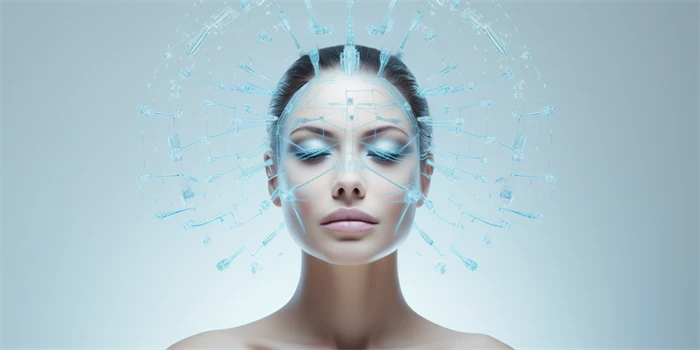Isotretinoin, commonly known by the brand name Claravis, is a powerful medication used in the treatment of severe acne. While it can work wonders for clearing up skin, it is important to understand its safety, potential side effects, and what to expect during treatment. In this expert guide, we will provide you with all the necessary information to make an informed decision about Claravis Isotretinoin.

Safety
Before starting any medication, it is crucial to consider its safety profile. Claravis Isotretinoin is derived from vitamin A and has been used for decades to effectively treat severe acne. However, it is not without potential risks and precautions:
1. Consultation with a Healthcare Provider
Prior to starting Claravis Isotretinoin, it is recommended to consult with a healthcare provider who can assess your medical history and determine if this medication is suitable for you.
2. Pregnancy Prevention
Claravis Isotretinoin is known to cause severe birth defects if taken during pregnancy. Effective contraception is essential for women of childbearing potential who are taking this medication.
3. Regular Monitoring
Throughout your Claravis Isotretinoin treatment, close monitoring by your healthcare provider is required. Blood tests, including liver function tests and lipid profiles, are commonly performed to ensure your safety.
4. Avoidance of Other Medications
Some medications, such as certain antibiotics and corticosteroids, may interact with Claravis Isotretinoin and increase the risk of side effects. It is important to inform your healthcare provider of all the medications you are currently taking.
Side Effects
Like any medication, Claravis Isotretinoin can cause side effects. While not everyone experiences them, it is important to be aware of the potential risks:
1. Dryness and Chapped Lips
The most common side effect of Claravis Isotretinoin is dryness of the skin and lips. It is recommended to use moisturizers and lip balms to alleviate these symptoms.
2. Flushing and Skin Sensitivity
Some individuals may experience flushing or increased skin sensitivity while taking Claravis Isotretinoin. Avoiding excessive sun exposure and using sunscreen can help minimize these effects.
3. Elevated Cholesterol Levels
Claravis Isotretinoin can temporarily increase cholesterol and triglyceride levels. Regular monitoring and dietary modifications may be necessary to manage these changes.
4. Mood Changes
Although rare, some individuals may experience mood changes or depression while taking Claravis Isotretinoin. If you notice any significant mood alterations, it is crucial to inform your healthcare provider immediately.
Expectations
Claravis Isotretinoin is known for its impressive results in treating severe acne. However, it is important to have realistic expectations about the medication:
1. Patience is Key
Claravis Isotretinoin takes time to work. It may take several weeks or even months before you start seeing significant improvement in your acne.
2. Initial Worsening
During the first few weeks of treatment, some individuals may experience an initial worsening of their acne. This is a normal reaction and usually resolves as the medication starts to take effect.
3. Long-Lasting Results
Claravis Isotretinoin has the potential to provide long-lasting results. Many individuals experience clear skin even after completing their treatment course.
4. Individual Response
Everyone's response to Claravis Isotretinoin can vary. Some individuals may need multiple treatment courses or may require additional acne management strategies post-treatment to maintain clear skin.
Frequently Asked Questions (FAQs)
1. How long does Claravis Isotretinoin treatment usually last?
The duration of treatment varies depending on the severity of your acne and how well you respond to the medication. On average, treatment can range from 4 to 6 months.
2. Can I wear makeup while on Claravis Isotretinoin?
Yes, you can wear makeup while taking Claravis Isotretinoin. However, it is important to choose oil-free, non-comedogenic products to avoid clogging your pores.
3. Is Claravis Isotretinoin safe for teenagers?
Yes, Claravis Isotretinoin can be safely used by teenagers under the close supervision of a healthcare provider. However, additional precautions may be necessary for female teenagers of childbearing potential.
4. Will my acne come back after stopping Claravis Isotretinoin?
While Claravis Isotretinoin has the potential to provide long-term remission of acne, there is a small chance of acne recurrence. It is important to follow a proper skincare routine and consult with your healthcare provider for post-treatment management strategies.
5. Are there any dietary restrictions while taking Claravis Isotretinoin?
There are no specific dietary restrictions while taking Claravis Isotretinoin. However, it is generally advised to follow a healthy, balanced diet for overall well-being.
Conclusion
Claravis Isotretinoin can be a life-changing medication for individuals suffering from severe acne. By understanding its safety profile, potential side effects, and what to expect during treatment, you can make an informed decision about whether it is the right option for you. Remember to always consult with a healthcare provider who can guide you through the treatment process and address any concerns you may have.
References
1. American Academy of Dermatology. (2019). Acne treatment: Isotretinoin. [Reference 1]
2. Mayo Clinic. (2020). Isotretinoin (Oral Route): Precautions. [Reference 2]
3. American Osteopathic College of Dermatology. (2021). Isotretinoin Treatment. [Reference 3]
4. National Health Service. (n.d.). Isotretinoin capsules. [Reference 4]
5. Food and Drug Administration. (n.d.). Drug Approval Package: Claravis (isotretinoin) capsules. [Reference 5]




